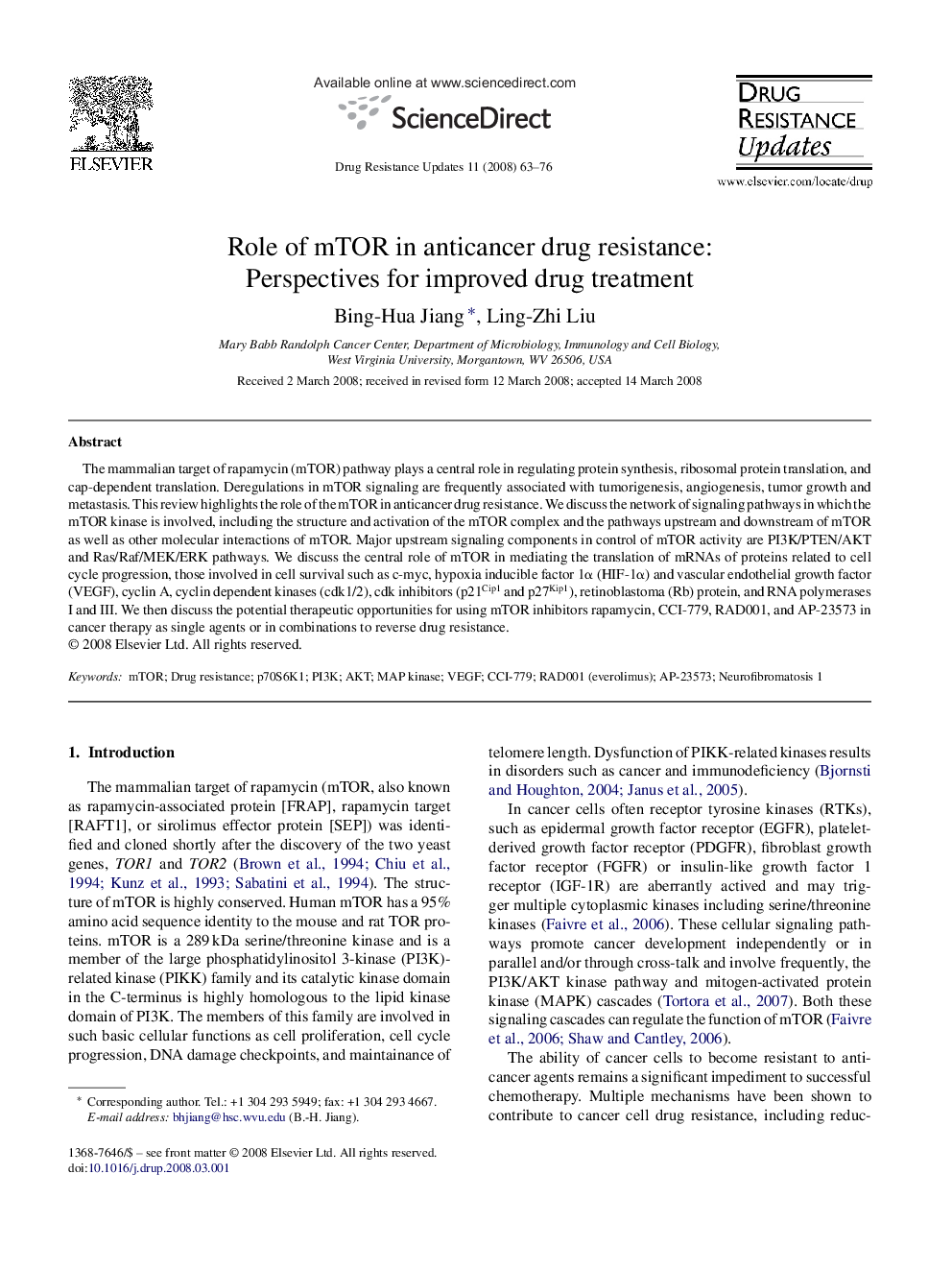| Article ID | Journal | Published Year | Pages | File Type |
|---|---|---|---|---|
| 2120500 | Drug Resistance Updates | 2008 | 14 Pages |
The mammalian target of rapamycin (mTOR) pathway plays a central role in regulating protein synthesis, ribosomal protein translation, and cap-dependent translation. Deregulations in mTOR signaling are frequently associated with tumorigenesis, angiogenesis, tumor growth and metastasis. This review highlights the role of the mTOR in anticancer drug resistance. We discuss the network of signaling pathways in which the mTOR kinase is involved, including the structure and activation of the mTOR complex and the pathways upstream and downstream of mTOR as well as other molecular interactions of mTOR. Major upstream signaling components in control of mTOR activity are PI3K/PTEN/AKT and Ras/Raf/MEK/ERK pathways. We discuss the central role of mTOR in mediating the translation of mRNAs of proteins related to cell cycle progression, those involved in cell survival such as c-myc, hypoxia inducible factor 1α (HIF-1α) and vascular endothelial growth factor (VEGF), cyclin A, cyclin dependent kinases (cdk1/2), cdk inhibitors (p21Cip1 and p27Kip1), retinoblastoma (Rb) protein, and RNA polymerases I and III. We then discuss the potential therapeutic opportunities for using mTOR inhibitors rapamycin, CCI-779, RAD001, and AP-23573 in cancer therapy as single agents or in combinations to reverse drug resistance.
